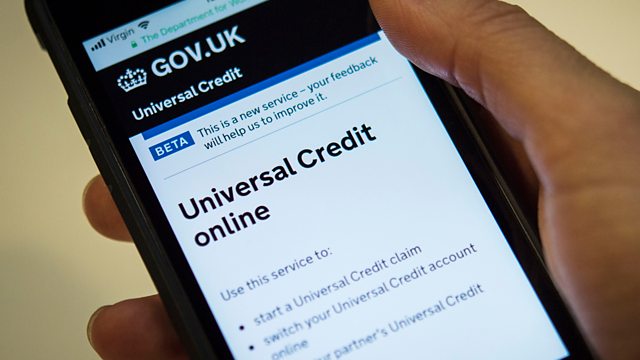Universal Credit: The Challenge Ahead
The 拢20 weekly uplift paid during the pandemic to those getting Universal Credit is ending. David Aaronovitch and his guests consider how it's operated and what should happen next.
At the start of the first pandemic lockdown the government announced a 拢20 uplift for those receiving Universal Credit, the benefit designed to help those of working age with their living costs. It made clear at the time that the extra money was temporary and, in the coming weeks, payments will start to be reduced.
But is a cliff-edge drop in the income of more than two-and-a-half million families the right step to be taking? And how best are the UK's poorest to be supported with the country still recovering from the pandemic?
David Aaronovitch and his guests evaluate how well Universal Credit has been helping those in and out of work and what the uplift has achieved for families and single person households.
Is giving more money to claimants the most effective way of helping them in the post-pandemic economy? Or, with prices rising for household essentials, should the government now be thinking about other measures to help those struggling to make ends meet?
How do we help the least well-off while being fair to taxpayers and not subsidising employers paying low wages?
Those taking part (in order of appearance):
Fran Bennett of the Department for Social Policy & Intervention at Oxford University;
Tom Waters, Senior Research Economist at the Institute for Fiscal Studies;
Gemma Tetlow, Chief Economist at the Institute for Government; and
Deven Ghelani, founder of the social policy business, Policy in Practice.
Producers Simon Coates, Jim Booth and Kirsteen Knight
Editor Jasper Corbett
Last on
More episodes
Previous
![]()
Where Are All the Workers?
As the economy opens up again, is the UK short of workers?
![]()
Who Do We Think We Are?
David Aaronovitch explores the new political demography of Britain and asks who are we?
![]()
Vaccine Passports and Booster Jabs
How useful might vaccine passports and booster jabs be over the winter?
Broadcast
- Thu 9 Sep 2021 20:0091热爆 Radio 4
Podcast
-
![]()
The Briefing Room
Step inside The Briefing Room for indepth explainers on the biggest news stories.





